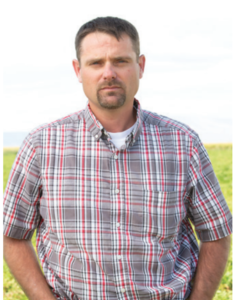« BACK TO 
Question: What emerging potato insect pests should be on our radar and why?
{Sponsored} Increasingly, potato growers are noticing foliage damage that appears to be from lygus bugs, also known as plant bugs.
Lygus bugs are not a new pest. However, the insecticides we use currently are narrower in spectrum than in the past and, because of this, lygus bugs are not controlled as effectively, or not controlled at all. We grow many different crops in potato regions, and lygus bugs feed on most of them. A good example is alfalfa. When it is harvested, the lygus bugs can move from the cut alfalfa to potatoes. Since alfalfa is harvested four to five times through the potato-growing season, the problem can compound quickly.
How do lygus bugs damage potato crops?
Lygus bugs feed on potato plants by injecting salivary enzymes into the plants with their needle-like mouthparts. After these enzymes break down the tissue, they begin to feed on the plant and cause those areas to die. The upper canopy turns purple because the salivary enzymes disrupt the flow of water and photosynthates.
What is the economic impact of lygus damage?
Entomologists are currently studying lygus bugs’ impact on potato yields and quality. A recent Washington State Extension study involved caging two separate sets of potato plants, infesting one set with lygus bugs and preventing infestation in the other. The infested plants showed swollen, shortened nodes and purpling of the canopy and the non-infested plants did not. Analysis of the tubers for yield and quality is underway. These results will help determine the level of infestation a potato plant can handle before economic losses occur.
Oregon State Extension is studying whether or not lygus bugs can transmit disease. We do know lygus bugs cause symptoms in the foliage, so the best bet is to control infestations until we learn more.
What is the best way to scout for lygus?
Sweep nets are not recommended since they can damage the foliage. Instead, place a beat sheet (ground cloth) or a bucket under the canopy, tap the plant and count the number of adults and nymphs present. Nymphs can look like aphids and will eat three times as much as adults. The way to tell if you’re seeing aphid or lygus nymphs is to watch how fast they move. Lygus bugs are significantly faster, lack the aphid’s rear appendage, called a cornicle, and have five dark spots on their backs.
How can farmers control lygus?
Lygus bugs are chemically and biologically difficult to control, but can be controlled by a short list of products. Beleaf® 50 SG insecticide is proven to be effective, as well as broad-spectrum insecticides such as pyrethroids.
Check with your local extension agents to see if they issue infestation rate alerts. Understanding current rates of infestation will help growers know when to apply Beleaf 50 SG insecticide in order to prevent damage from lygus bugs. Beleaf 50 SG insecticide has a unique mode of action and prevents the needle-like mouths on lygus bugs from becoming rigid, stopping them from feeding until they starve. This insecticide has a low impact to many important beneficial predators.
What else can be done to minimize lygus populations?
Adjacent alfalfa fields or weeds can increase lygus bug infestations. Lygus bugs move quickly across far distances, making it hard to control them outside of your own fields. Biological agents being marketed include predatory wasps. However, it is difficult to build the wasp population to the point they will control a lygus bug infestation and, even then, the wasps also feed on the slower-moving aphids.
The good news in all this is that several Extension groups are doing research on lygus bugs and will know soon if they are an economic pest. See more Spud Science at spudman.com/fmcspudscience.
Always read and follow all label directions, restrictions and precautions for use. Some products may not be registered in all states. FMC is a trademark of FMC Corporation. Beleaf is a trademark of Ishihara Sangyo Kaisha, Ltd.
©2018 FMC Corporation. All rights reserved. 18-FMC-1510 09/18

 Tim Waters is a regional vegetable specialist and associate professor for WSU Extension. He has been stationed at the Extension office in Pasco since 2006 and has responsibility for irrigated vegetable crops in the lower Columbia Basin. He performs outreach and applied research on various vegetable crops including potato, onion, corn, carrots, beans, peas and alternative crops. Recently, he has focused on improving integrated pest management of pests of potato and onion. Tim is an entomologist by training having earned both MS and PhD degrees from Washington State University. “Go Cougs!”
Tim Waters is a regional vegetable specialist and associate professor for WSU Extension. He has been stationed at the Extension office in Pasco since 2006 and has responsibility for irrigated vegetable crops in the lower Columbia Basin. He performs outreach and applied research on various vegetable crops including potato, onion, corn, carrots, beans, peas and alternative crops. Recently, he has focused on improving integrated pest management of pests of potato and onion. Tim is an entomologist by training having earned both MS and PhD degrees from Washington State University. “Go Cougs!”



